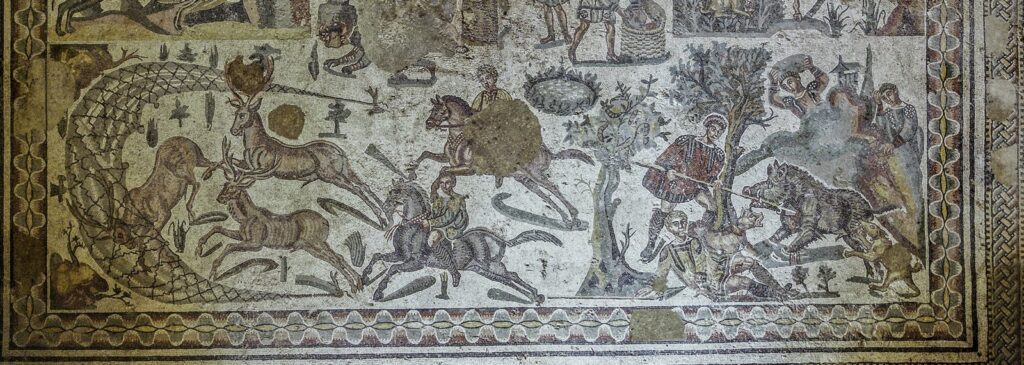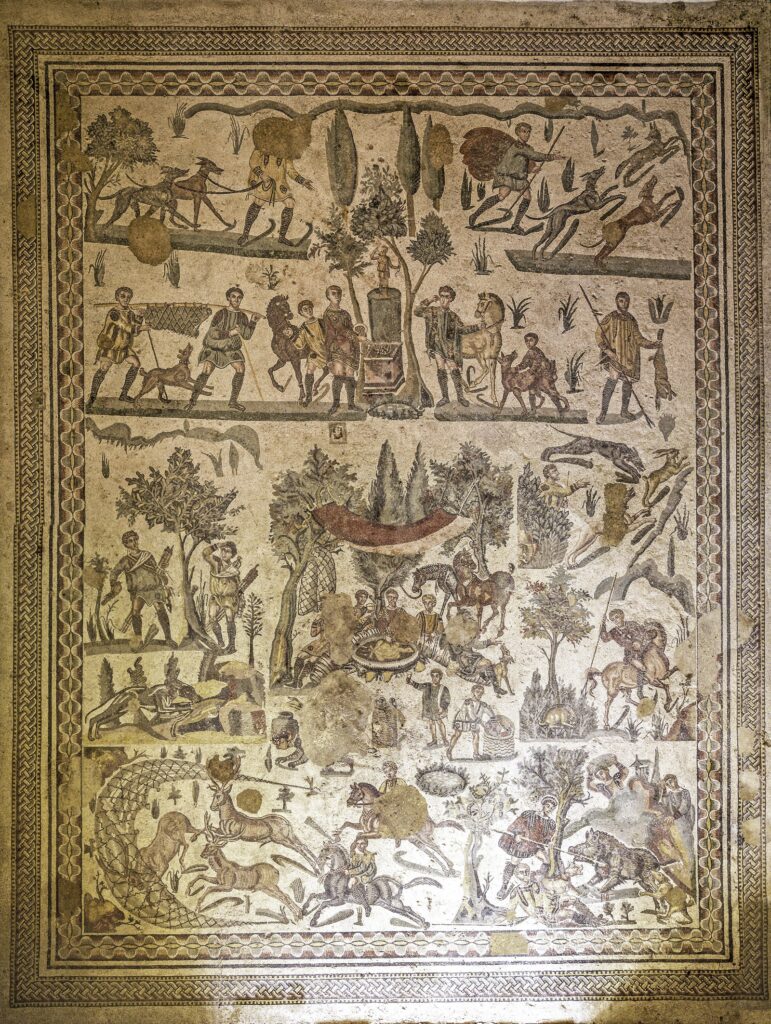 The importance given to hunting is testified to by many literary texts, especially written in imperial times, in which it is shown as the celebration of certain aspects of virtus, related to the exaltation of strength and cunning. The hunting activity was practised both as a moment of leisure for the owners of the latifundia, and as a function to supply animals for the shows that took place in the
Flavian Amphitheatre
The importance given to hunting is testified to by many literary texts, especially written in imperial times, in which it is shown as the celebration of certain aspects of virtus, related to the exaltation of strength and cunning. The hunting activity was practised both as a moment of leisure for the owners of the latifundia, and as a function to supply animals for the shows that took place in the
Flavian Amphitheatre
in Rome.
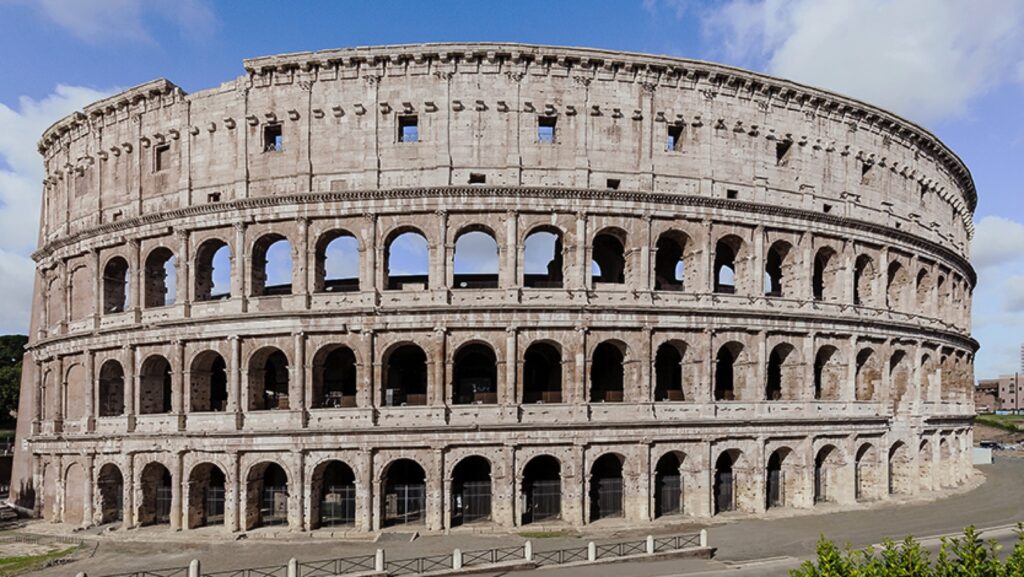 The large and imposing entrance of this room distinguishes it from the rooms preceding it on the north portico of the peristyle. It is the only room to have columns at the entrance, not an apse, confirming that its function, likely a dining room or winter living space, was both public and private.
The large and imposing entrance of this room distinguishes it from the rooms preceding it on the north portico of the peristyle. It is the only room to have columns at the entrance, not an apse, confirming that its function, likely a dining room or winter living space, was both public and private.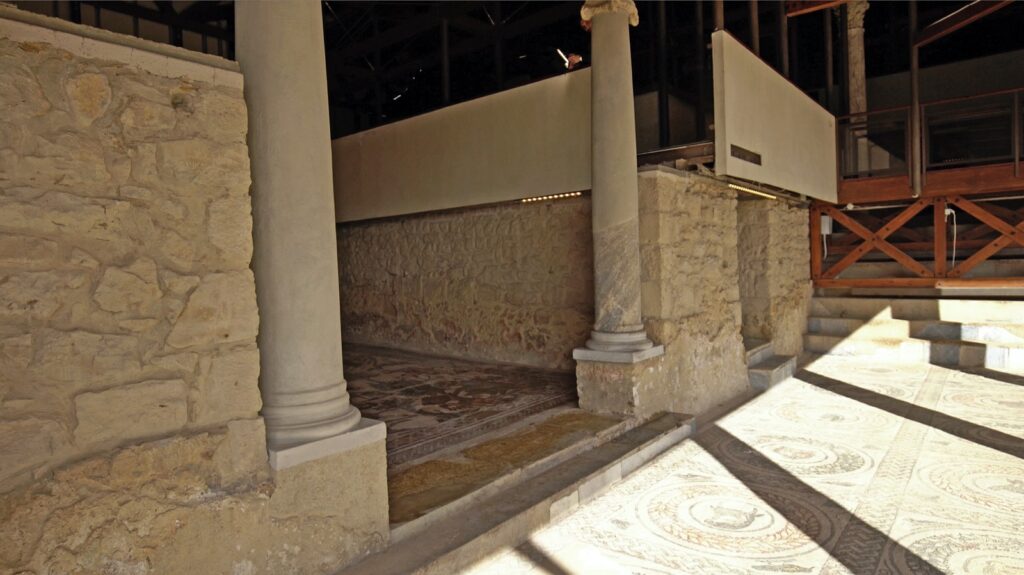 The more discreet tone, compared to other reception places, is underlined by the absence of marble slabs on the walls. The mosaic floor describes a series of scenes unfolding on five registers, of extreme and lively realistic synthesis, which present the commissioner of the villa with his family and servants on a hunting trip with dogs.
The more discreet tone, compared to other reception places, is underlined by the absence of marble slabs on the walls. The mosaic floor describes a series of scenes unfolding on five registers, of extreme and lively realistic synthesis, which present the commissioner of the villa with his family and servants on a hunting trip with dogs.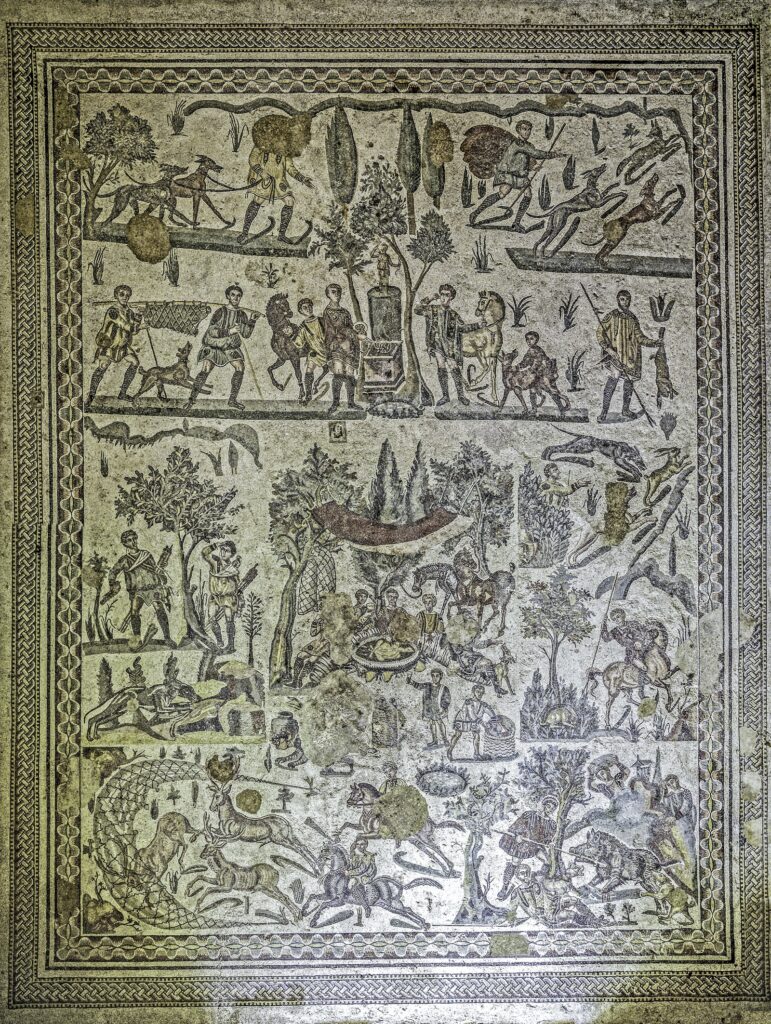 The first register depicts the departure for the hunt and the pursuit of a fox,
The first register depicts the departure for the hunt and the pursuit of a fox, 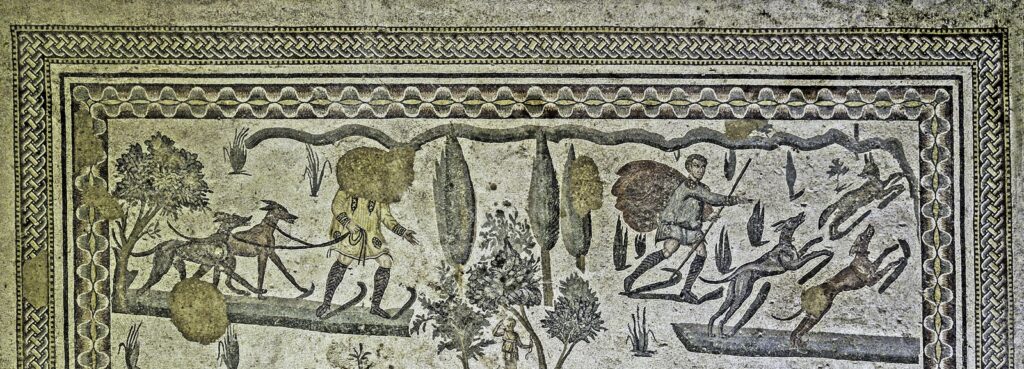 while the transport of a captured boar and a scene of sacrifice and offering to
Diana
while the transport of a captured boar and a scene of sacrifice and offering to
Diana
occupy the second register.
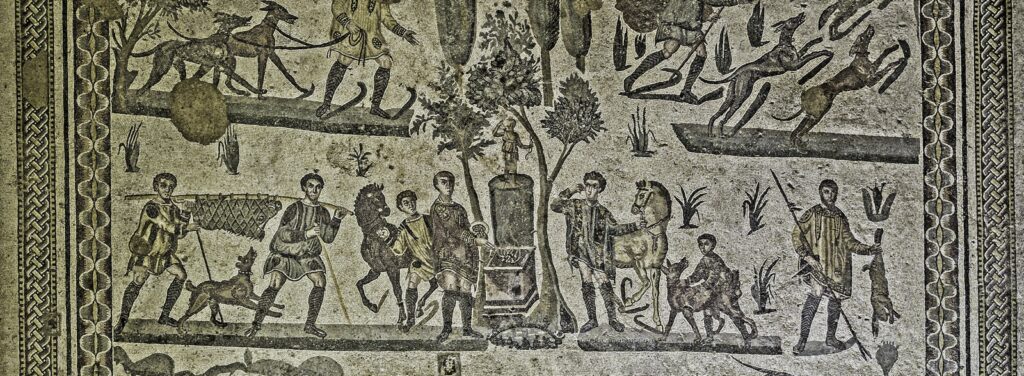 Below, in the central part, the narration continues with the description of an open-air banquet animated by richly dressed illustrious characters sitting on a stibadium, a wide semicircular sofa used for banquets, surrounded by hunters and servants.
Below, in the central part, the narration continues with the description of an open-air banquet animated by richly dressed illustrious characters sitting on a stibadium, a wide semicircular sofa used for banquets, surrounded by hunters and servants.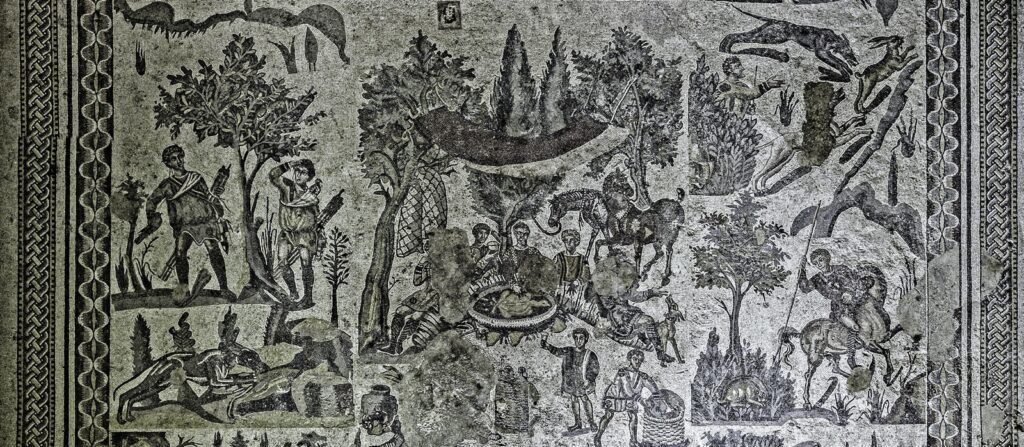 Breakfast in the reserve, which also continues in the fourth register, alternates with episodes of a fox chase and the capture of a hare.
Breakfast in the reserve, which also continues in the fourth register, alternates with episodes of a fox chase and the capture of a hare.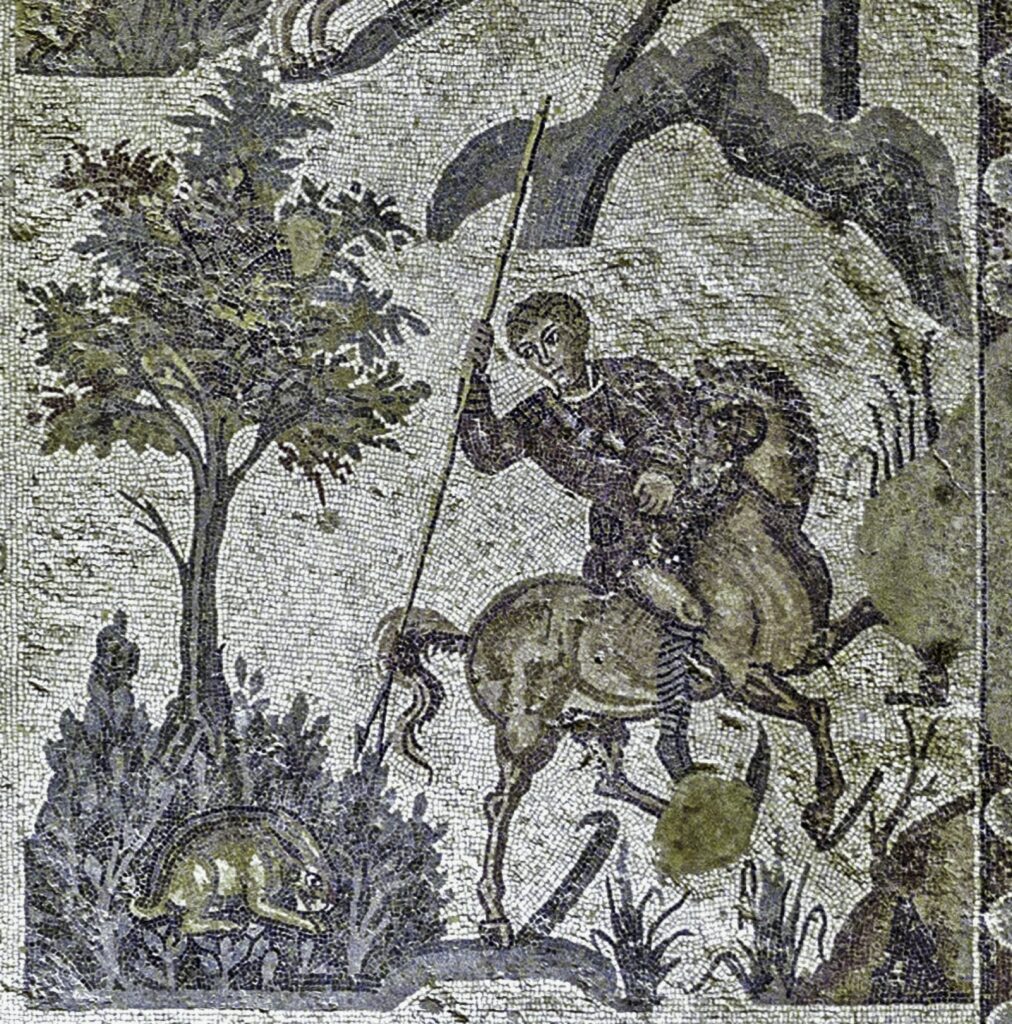 In a dynamic and realistic way, the final part of the mosaic surface depicts the deer hunt with a net and the killing of a boar.
In a dynamic and realistic way, the final part of the mosaic surface depicts the deer hunt with a net and the killing of a boar.